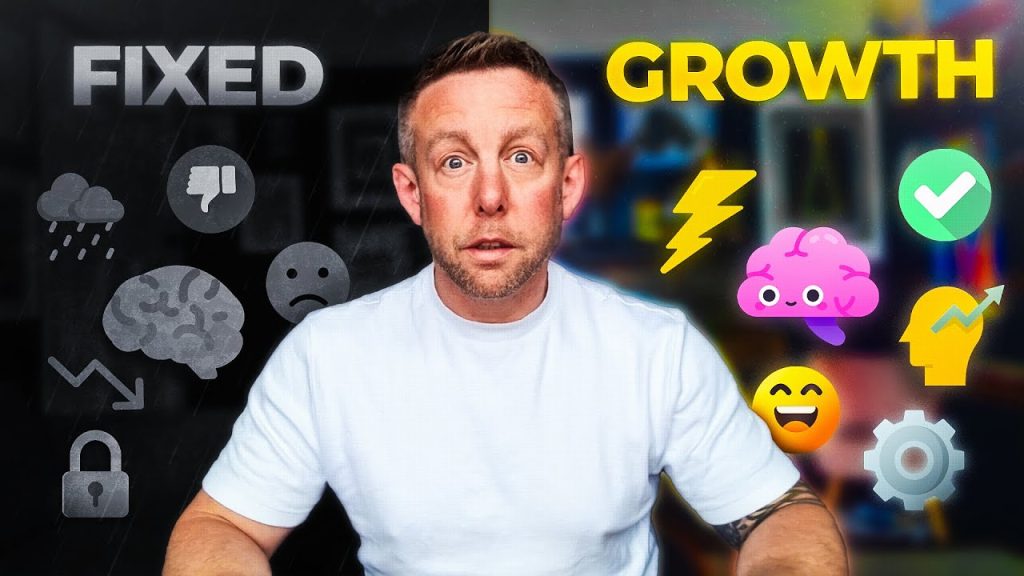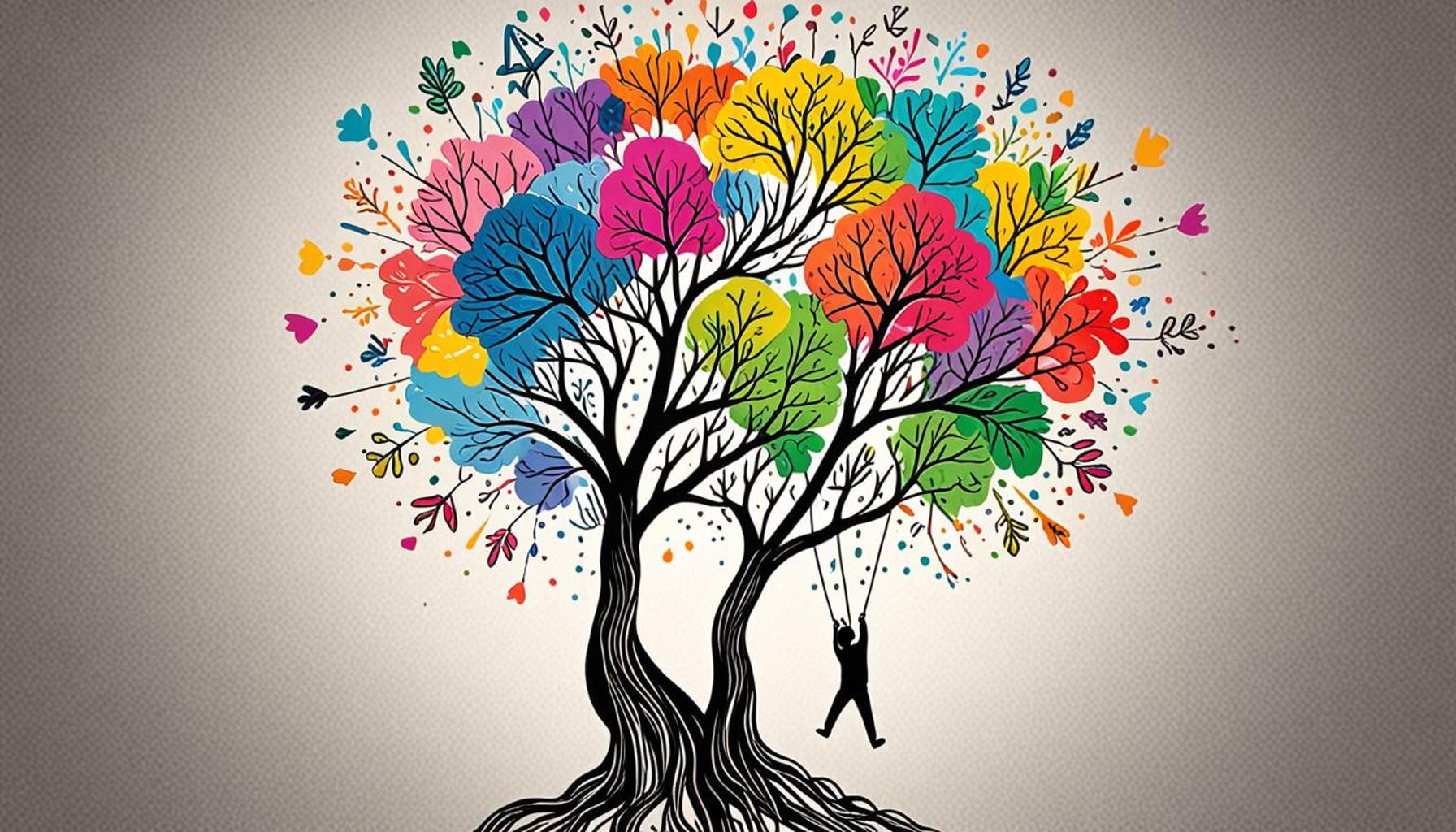Developing Problem-Solving Skills as a Learning Strategy to Promote a Growth Mindset

Embracing Challenges as Opportunities
In the journey of life, each challenge encountered serves as a valuable opportunity for personal and professional development. Particularly in Nigeria, where the interplay of culture, education, and entrepreneurship shapes daily experiences, developing problem-solving skills is a critical asset. These skills empower individuals to effectively navigate the complexities of an evolving landscape characterized by rapid changes and multifaceted challenges.
The Essence of Problem-Solving
Problem-solving transcends mere solution-finding; it represents a profound learning strategy that fosters a growth mindset. By cultivating this mindset, individuals are encouraged to:
- Embrace challenges as stepping stones to success rather than viewing them as insurmountable hurdles.
- Learn from failures, interpreting them as valuable lessons that drive personal growth instead of seeing them as demoralizing setbacks.
- Persevere through difficult times, understanding that persistence is an intrinsic part of the learning process.
Practical Applications of Problem-Solving
Incorporating problem-solving into everyday experiences can significantly transform how students, professionals, and communities engage with their surroundings. For instance:
- Students might engage in projects that address local environmental issues, such as waste management or community health, honing their analytical skills while actively participating in their communities.
- Professionals, particularly in sectors like technology and agriculture, can approach workplace challenges with innovative solutions, improving productivity and fostering a culture of creativity.
- Communities can collaborate to tackle pressing social issues such as poverty or educational disparity, creating strong bonds and fostering unity among residents.
Unlocking Human Potential
Exploring the relationship between problem-solving skills and a growth mindset reveals exciting dimensions of human potential. For example, consider the story of local entrepreneurs who, through trial and error, have developed unique businesses that cater to regional needs. Their journeys exemplify how resilience in the face of failure can lead to groundbreaking innovations.
This article will delve deeper into the strategies and benefits of embracing problem-solving as a pathway to a growth mindset. It will shine a light on how, particularly in Nigeria, individuals can harness these skills to not only overcome their unique challenges but to display adaptability and thrive in an increasingly dynamic world.

SEE ALSO: Click here to read another article
Nurturing an Adaptive Mindset Through Problem-Solving
At the heart of developing problem-solving skills lies the ability to adapt and thrive in uncertain situations. This skill set is essential in Nigeria, where rapid changes in economic, social, and technological landscapes present unique challenges. From students grappling with academic pressures to entrepreneurs facing fierce competition, cultivating an adaptive mindset through problem-solving can determine success.
Theoretical Foundations of Problem-Solving
Understanding the conceptual frameworks surrounding problem-solving is crucial. Cognitive psychologists posit that effective problem-solving involves a series of steps:
- Identifying the problem: Recognizing the underlying issue is the first step toward finding a solution. This requires keen observation and analysis of the circumstances at hand.
- Generating possible solutions: Creativity plays a significant role here, as brainstorming a multitude of options can lead to innovative ideas. Exploring diverse perspectives fosters a growth mindset.
- Evaluating solutions: Critical thinking allows individuals to assess the feasibility of their ideas, weighing the pros and cons before deciding on the best course of action.
- Implementing and monitoring the solution: Execution is key. Monitoring outcomes and adapting strategies as needed can refine the problem-solving process.
Incorporating these steps into daily life can create a robust foundation for tackling challenges effectively. This systematic approach not only enhances problem-solving abilities but also nurtures a growth mindset, allowing individuals to persist through setbacks and view failures as opportunities for growth.
Real-World Examples of Effective Problem-Solving
Consider the bustling markets of Lagos, where vendors and entrepreneurs continuously adapt to fluctuating demands and competition. One exemplary case is that of local artisans who, faced with the challenges of importing materials, began sourcing sustainable and locally made alternatives. This pivot not only reduced costs but also aligned with the growing consumer demand for eco-friendly products. This is a prime illustration of how developing problem-solving skills can lead to innovative solutions and enhanced viability.
Additionally, educational initiatives across Nigeria are beginning to incorporate problem-based learning in their curricula. By engaging students in real-life scenarios—from resolving community health issues to creating tech solutions that address educational disparities—schools are fostering a generation adept at navigating challenges. This progressive approach not only promotes critical thinking but also cultivates an intrinsic motivation to learn.
As more individuals in Nigeria embrace this adaptive approach to problem-solving, the potential for personal and societal transformation becomes increasingly evident. With a focus on innovation, collaboration, and resilience, Nigerians can harness the power of problem-solving skills to pave the way for a more prosperous future.
Unleashing Potential Through Problem-Solving
Problem-solving is not just a set of skills; it is a profound strategy that fosters a growth mindset. By engaging in systematic problem-solving, learners can cultivate a deeper understanding of concepts and enhance their cognitive flexibility. This adaptability is essential as it allows individuals to approach challenges with confidence, understanding that obstacles can be navigated through perseverance and creativity.
Real-World Applications
Exploring real-world scenarios where students apply problem-solving can significantly illuminate this concept. For instance, using projects that require critical thinking—such as designing a sustainable garden or developing a business model—provides students with an avenue to integrate knowledge across various subjects while simultaneously promoting their ability to think outside the box. These challenges enable learners to experience firsthand how their efforts can lead to tangible outcomes, reinforcing the idea that intelligence and skill can be developed.
Feedback Mechanisms
Feedback is another critical component in developing problem-solving skills. When learners receive constructive critiques on their approaches to solving problems, it not only enhances their understanding but also instills a belief in their capacity to improve. Encouraging a culture where mistakes are seen as learning opportunities can help in fostering resilience and adaptability, essential traits of a growth mindset.To leverage problem-solving effectively, educators and parents alike must create an environment that encourages inquiry and experimentation. By allowing learners the freedom to explore various solutions and learn from their outcomes, they will be better positioned to face future challenges head-on.
| Advantage | Description |
|---|---|
| Enhanced Critical Thinking | Problem-solving hones analytical skills vital for evaluating complex situations. |
| Greater Resilience | Developing solutions to challenges reinforces the idea that persistence leads to success. |
These advantages of integrating problem-solving into learning strategies are not just theoretical; they hold genuine promise for fostering a growth-oriented educational experience. By embracing this pivotal approach, we can inspire learners to transform challenges into opportunities for growth, ultimately enriching their educational journey.
LEARN MORE: This related article may interest you
Integrating Problem-Solving into Everyday Life
Fostering a growth mindset through problem-solving skills extends beyond formal education and the workplace; it can be woven into the very fabric of daily living in Nigeria. By cultivating a culture of inquiry and creativity within families and communities, individuals can better navigate complex challenges. Simple practices, such as engaging in group discussions about local issues, can inspire collaborative problem-solving approaches and prompt innovative solutions.
Community Engagement as a Tool for Problem-Solving
Community involvement acts as a breeding ground for developing effective problem-solving skills. In cities like Ibadan and Aba, community forums and co-operative societies have become platforms for addressing prevalent challenges, whether it involves sanitation, health, or education. These gatherings encourage participants to identify common problems and mobilize resources to devise solutions collectively. This sense of shared responsibility not only strengthens community bonds but also instills a sense of agency in individuals, reinforcing the belief that they can effect change.
For instance, in response to flooding issues during Nigeria’s rainy season, communities have initiated programs that focus on managing waterlogged areas through innovative drainage systems using locally sourced materials. By prioritizing collective action and shared learning experiences, these communities demonstrate their ability to adapt and evolve, reflecting the essence of a growth mindset.
Mentorship Programs: Bridging Experience with Learning
Another impactful approach within the Nigerian context involves mentoring relationships that champion problem-solving. By connecting seasoned professionals with students or young entrepreneurs, mentorship programs facilitate knowledge transfer tailored to real-world challenges. Mentors can guide mentees through the problem-solving process, illustrating how to critically assess situations and develop actionable plans. In this way, mentorship serves as a powerful learning strategy, reinforcing not only practical skills but also emotional resilience necessary for overcoming setbacks.
Programs such as the Mentorship for Youth Initiative have gained traction, where successful entrepreneurs volunteer their time to help youths develop both entrepreneurial and problem-solving skills. These initiatives illustrate how structured mentorship can cultivate an environment where challenges are reframed as stepping stones towards future success.
Leveraging Technology for Problem-Solving
In today’s digital age, technology serves as a critical enabler of problem-solving skills. The rise of mobile applications and online platforms has revolutionized access to resources and knowledge. For example, platforms like NGOWare connect users to tools and networks that facilitate project management and foster innovation, empowering young Nigerians to tackle pressing societal issues effectively. By utilizing technology, learners are encouraged to embrace challenges and explore unconventional solutions.
Moreover, online courses that focus on design thinking and problem-solving techniques afford individuals the flexibility to develop their skills independently. The convenience of accessing relevant content at one’s own pace encourages continuous learning and contributes to the broader endeavor of developing a growth mindset.
As Nigerians increasingly adopt these integrated approaches to develop problem-solving skills in their everyday lives, the outlook for personal and communal growth remains optimistic. A culture that values inquiry, collaboration, and resilience can pave the way for innovations that not only address immediate challenges but also foster a society capable of taking on the complexities of tomorrow.
RECOMMENDED: Check out this similar article
Conclusion
In summary, developing problem-solving skills as a learning strategy is a crucial element in promoting a growth mindset, particularly in the dynamic context of Nigeria. By integrating problem-solving approaches into everyday life, as well as through community engagement, mentorship, and technological advancements, individuals can cultivate resilience and adaptability. These experiences not only nurture a culture of inquiry but also empower individuals to reframe challenges as opportunities for growth.
The examples of community mobilization around local issues, such as flooding solutions or health initiatives, highlight the power of collective thinking and innovative approaches in addressing societal challenges. Additionally, the role of structured mentorship programs reveals how valuable knowledge transfer can inspire younger generations to embrace complex problems with confidence. This mentorship, complemented by technology and online resources, ensures that the learning process is both practical and accessible.
As Nigeria continues to navigate its unique challenges, encouraging a culture that prioritizes problem-solving will enable individuals not only to thrive but also to contribute to national development. In this ever-evolving landscape, those who develop robust problem-solving skills will be better positioned to tackle future uncertainties, establish meaningful connections, and foster a legacy of resilience and innovation. Ultimately, nurturing these skills will empower individuals and communities to envision a brighter future—one where challenges are met with creativity and tenacity, reinforcing the profound influence of a growth mindset on personal and societal transformation.


